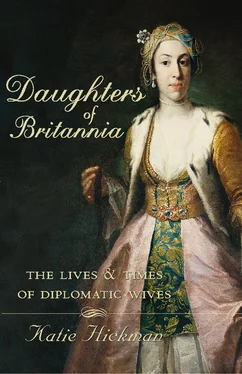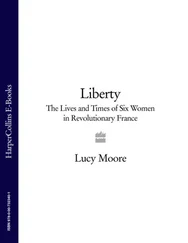On that journey, she believed, Persia had in some way entered her very soul. ‘Now I shall not tell you about Persia, and nothing of its space, colour and beauty, which you must take for granted – ’ she wrote to Virginia Woolf on her arrival in Tehran in March 1926, ‘but please do take it for granted, because it has become part of me, – grafted on to me, leaving me permanently enriched.’ But the exact quality of this enrichment even she found hard to put her finger on. ‘But all this, as you say, gives no idea at all. How is it that one can never communicate? Only imaginary things can be communicated, like ideas, or the world of a novel; but not real experience … I should like to see you faced with the task of communicating Persia.’ 14
Such difficulties, however, were as nothing compared to the difficulties and hardships often involved in the actual travelling itself. When Mary Fraser set off from Venice to make the journey to Peking in 1874 she was unprepared for the rigours of her first diplomatic journey, even though, having lived in Italy and America, she was relatively well travelled for a young woman. At first all was well, even though she could not help noticing the strange smell on board their boat: ‘the abominable, acrid, all-pervading smell of the opium cargo it was carrying’. By the time they reached Hong Kong, however, they had other worries: the worst typhoon in fifty years had all but destroyed the little island.
The P & O agent who came to meet their boat, ‘ashy pale and still trembling in every limb’, described how the storm had literally ripped apart the island in less than two hours. All shipping vessels had been wrecked, half the buildings ruined and not a single tree had been left standing in the Botanical Gardens. Worse than all this, though, was the fate of Hong Kong’s coolies and their families who had been living in sampans in the harbour – an estimated 10,000 had been drowned. By the time the Frasers arrived the water in the harbour was awash with the floating bodies of men, women and children. As she disembarked, Mary accidentally stepped on one of them and thereafter, ‘I could not be left alone for a moment without feeling faint and sick.’ In the tropical heat the corpses were already beginning to putrefy. Pestilence was all around and the atmosphere, she recalled with horror, ‘was that of a vast charnel house’.
The Frasers then travelled on to Shanghai without incident, and Mary recovered her composure enough to enjoy the rest of the journey, even the final stretch up the Pei-Ho river, although at first she surveyed the preparations with dismay. For the five-day river journey they had a fleet of five boats, each with five boatmen. Three of these carried their luggage; one was a kitchen and store room; while the fifth was fitted up snugly as a sleeping room and dining room. At night the boatmen pulled up the boards on the deck of their boat and, packed ‘like sardines in a tin’, they fitted the boards back tightly over themselves and slept peacefully. On the Frasers’ boat there was a little deck at the front with two chairs and ‘a tiny caboose sunk aft’, where a mattress could be laid on the floor at night. By day it was replaced by a table. ‘In the morning,’ Mary recalled, ‘poor Hugh used to hurry into his clothes, and go on shore for a walk, while I attempted to make my toilet, in all but darkness, with the help of one tin basin, muddy river water, and a hand glass.’
Although, unlike her husband, she was quite unused to these primitive travelling arrangements – ‘the Frasers’, she once commented, ‘are all Spartans’ – Mary was quick to learn a certain diplomatic stoicism. For most of the five days they spent on the Pei-Ho their servant, Chien-Tai, cooked ‘with marvellous success’ amidst her trousseau trunks in the kitchen boat and ‘not a course that we would have had on shore was omitted’; but on one terrible occasion, amidst torrential rain, the boats became separated and they had nothing to eat for a whole day. The two of them passed the day gloomily in the blacked-out caboose, lighted only by two meagre candles. 15
On her journey to Constantinople in 1716 Lady Mary Wortley Montagu, together with her husband and infant son, faced still greater hardships. On the mountain roads between Bohemia and Saxony she was so frightened by the sheer precipices that when she finally arrived in Dresden she could not compose herself to write at all. Their journey was all the more dangerous because they travelled at night, with only the moon to light their way.
In many places the road is so narrow that I could not discern an inch of space between the wheels and the precipice [she wrote to her sister Lady Mar]. Yet I was so good a wife not to wake Mr Wortley, who was fast asleep by my side, to make him share in my fears, since the danger was unavoidable, till I perceived, by the bright light of the moon, our postilions nodding on horseback while the horses were on a full gallop, and I thought it very convenient to call out to desire them to look where they were going.
As they travelled further south the danger of mountain precipices was replaced by another less dramatic but no less real peril: the weather. From Vienna Lady Mary wrote again to her sister on the eve of their journey through Hungary. It was January, and the entire country was so frozen by ‘excessive cold and deep snows’ that her courage almost failed her. ‘The ladies of my acquaintance have so much goodness for me, they cry whenever they see me since I have determined to undertake this journey; and, indeed, I am not very easy when I reflect on what I am going to suffer.’ Lady Mary’s usually sanguine tone begins to waver a little at this point; but when no less a person than Prince Eugene of Savoy, the Austrian general, advises her against the journey she begins to sound genuinely frightened.
Almost everybody I see frights me with some new difficulty. Prince Eugene has been so good as to say all the things he could to persuade me to stay till the Danube is thawed, that I may have the convenience of going by water, assuring me that the houses in Hungary are such as are no defence against the weather, and that I shall be obliged to travel three or four days between Buda and Essek without finding any house at all, through desert plains covered with snow, where the cold is so violent many have been killed by it. I own these terrors have made a very deep impression on my mind, because I believe he tells me things truly as they are, and nobody can be better informed of them.
She ends her letter, ‘Adieu, my dear sister. If I survive my journey, you shall hear from me again.’ And then, in an uncharacteristically maternal aside: ‘I can say with great truth, in the words of Moneses, I have long learnt to hold myself as nothing, but when I think of the fatigue my poor infant must suffer, I have all a mother’s fondness in my eyes, and all her tender passions in my heart.’
As it turned out, Lady Mary’s fears were not realized and the Wortley Montagus survived their journey. Although the snows were deep, they were favoured with unusually fine weather, and with their carriages fixed upon ‘traineaus’ (‘by far the most agreeable manner of travelling post’) they made swift progress. What they saw on the frozen Hungarian plains, however, shocked even their robust eighteenth-century sensibilities. Lady Mary recorded her impressions of the fields of Karlowitz, where Prince Eugene had won his last great victory over the Turks, in a letter to her friend, the poet Alexander Pope:
The marks of that glorious bloody day are yet recent, the field being strewed with the skulls and carcasses of unburied men, horses and camels. I could not look without horror on such numbers of mangled human bodies, and reflect on the injustice of war that makes murder not only necessary but meritorious. Nothing seems to me a plainer proof of the irrationality of mankind, whatever fine claims we pretend to reason, than the rage with which they contest for a small spot of ground, when such vast parts of fruitful earth lie quite uninhabited. 16
Читать дальше












